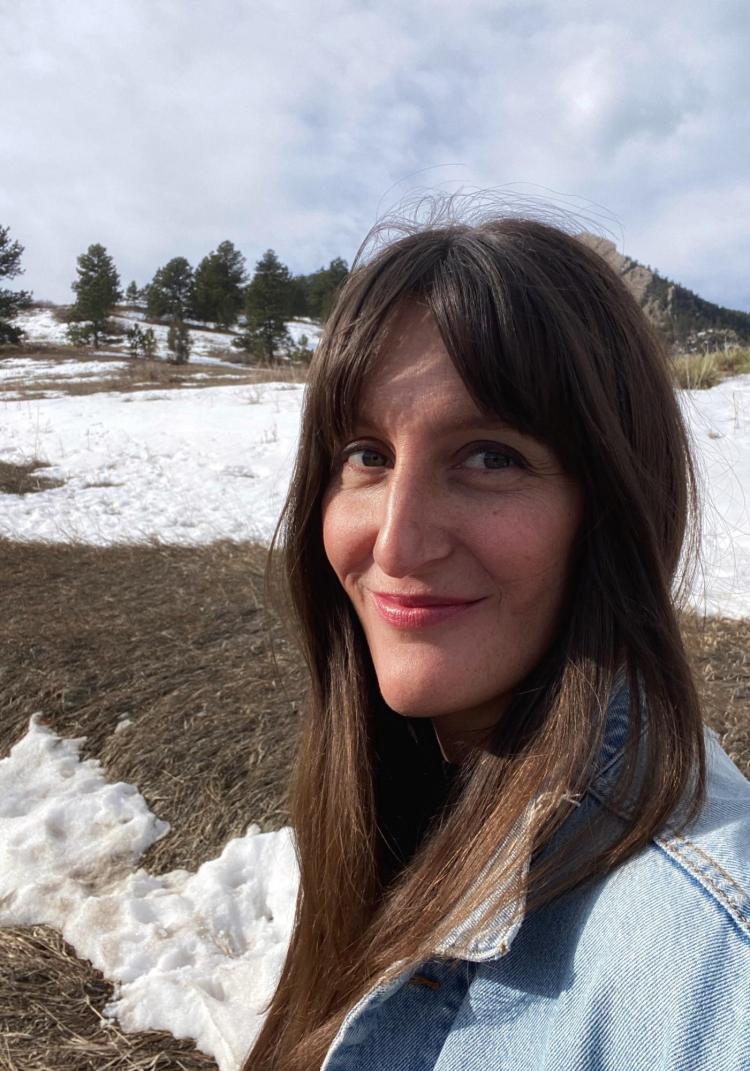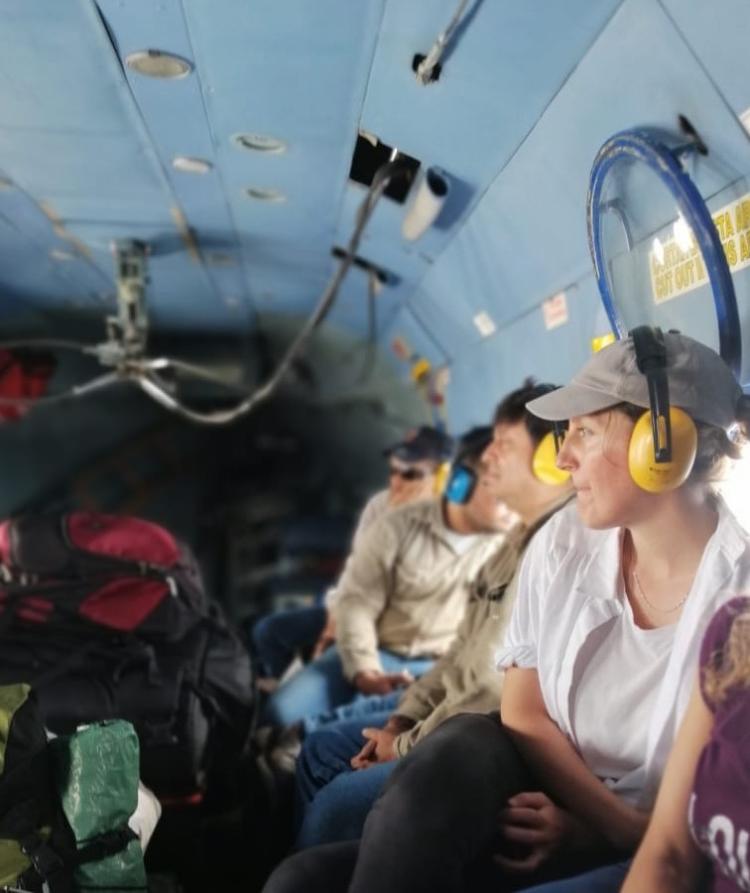Five Questions for the Fellows: Jessica Camille Aguirre
The Ted Scripps Fellowships have been bringing award-winning environmental journalists to CU Boulder for 26 years. Fellows embark on a year of courses, projects, field trips, seminars and more— taking advantage of everything university life has to offer. This series is a chance to get to know this year’s cohort of talented journalists beyond what a typical bio page will tell you.

Aguirre sat down with CEJ graduate assistant Devin Farmiloe to talk about her work and experience as a fellow.
Jessica, you focus on climate change topics at their extremes. What is a climate extreme you have reported on that highlights the magnitude of the crisis?
When I say that I write about climate change and extremes, what I mean is that climate change as it's affecting our planet is going to exacerbate the occurrence of these extremes. What I'm interested in is how humans confront that experience: what it means to be pushing those extremes further and further, as we start experiencing to a greater and greater degree the effects of the changing chemistry of our planet. In that sense, I think that it's kind of a broad interest of mine. In terms of an extreme experience, one thing that I've been writing about recently is space exploration. What kind of impact that leaving the planet has on people's perceptions of the planet. The extremity of being in space and how that often catalyzes a kind of shift in perspective about what it means to have a planet that enables biological life, and what it means then to protect the planet, especially when you consider the uniqueness of it in the universe.
You are currently working on a project about recreating the earth's ecosystem for space travel. What is your most interesting finding from that line of inquiry?
What I expected to find—and have been finding—is just the level of complexity that is inherent in ecosystems that support human life, and how difficult it is to recreate anything like that. I think that’s what initially drew me to the question of recreating ecosystems and what continues to interest me about the question. More specifically, one of the things I found really interesting in researching this is that a lot of the ways in which we recreate ecosystems are for space travel, and so they're these miniature, artificial environments. And because they're small, you can only fit a certain number of people in them, so you've got these little groups of people isolated for months at a time. They end up producing some really interesting psychology, and interpersonal relationships, and interpersonal dynamics. So much of what it means to be alive is to negotiate our interpersonal relationships, and how that can be really challenging when they're placed under duress.
Could you tell me more about the studies being conducted in these artificial environments?
The first series of experiments were done in Siberia in the 1960s, where they created these underground bunkers. They used algae to produce a lot of oxygen, and grew some crops for food. The Soviet scientists at the time were like, “We should diversify what we're giving the participants to eat.” So then the ecosystems became much more complicated. They still used algae to produce a lot of their oxygen, but then they started introducing things like wheat crops and cucumbers and beets and other stuff. And these cosmonauts would be locked into them. They were hermetically sealed so they wouldn't get any oxygen from the atmosphere, and all of their carbon dioxide that they emitted would be trapped in with them to test whether or not these plant ecosystems would be able to process the participants’ chemical effluents. Those are the first experiments that they were locked into for months at a time. And then obviously psychologists also watched how they interacted with each other.
Then the next large-scale experiments were the experiments in Arizona in the late ’80s, early ’90s. NASA at the time was developing a couple of different human enclosure experiments to try to test out closed-loop ecosystems. Then the most recent ones are underway in China at something called the Lunar Palace, outside of Beijing. The reason it is called the Lunar Palace is the idea of it is to create a human habitat that they can export to a colony on the moon. So there are concrete ambitions to establish human colonies on the moon that have been articulated by the Chinese government.
Moving to something quite a bit less complex, how has your time in Boulder and the fellowship so far?
It's been great. I have felt very privileged to be able to attend classes across a range of departments here at the university. In particular, I'm taking a few classes in the geology department, which have been really eye-opening and have deepened my appreciation of the Earth's history and deep time. I have also taken classes in environmental philosophy and environmental chemistry. I've had the chance to really expand my studies and extend my studies in a lot of different areas that I didn't necessarily feel confident in beforehand.
I also think that having the opportunity to be here with a cohort of accomplished journalists who are here to pursue these really interesting projects has been an extraordinary privilege. It's a lot of fun to be able to meet up with them at least once a week. We meet more often, but in the seminars we get to talk about some of the biggest environmental stories of our time. That's been a lot of fun as well.
Lastly, what do you do outside of journalism?
I spend a lot of time reading and I like to hang out with friends and cook meals with people. I like to spend time outside, which Boulder has been great for. It's kind of amazing how many different hiking paths and incredible outdoor spaces you can reach within five minutes from downtown Boulder. So that's been something else that has been really great about my time here so far.


